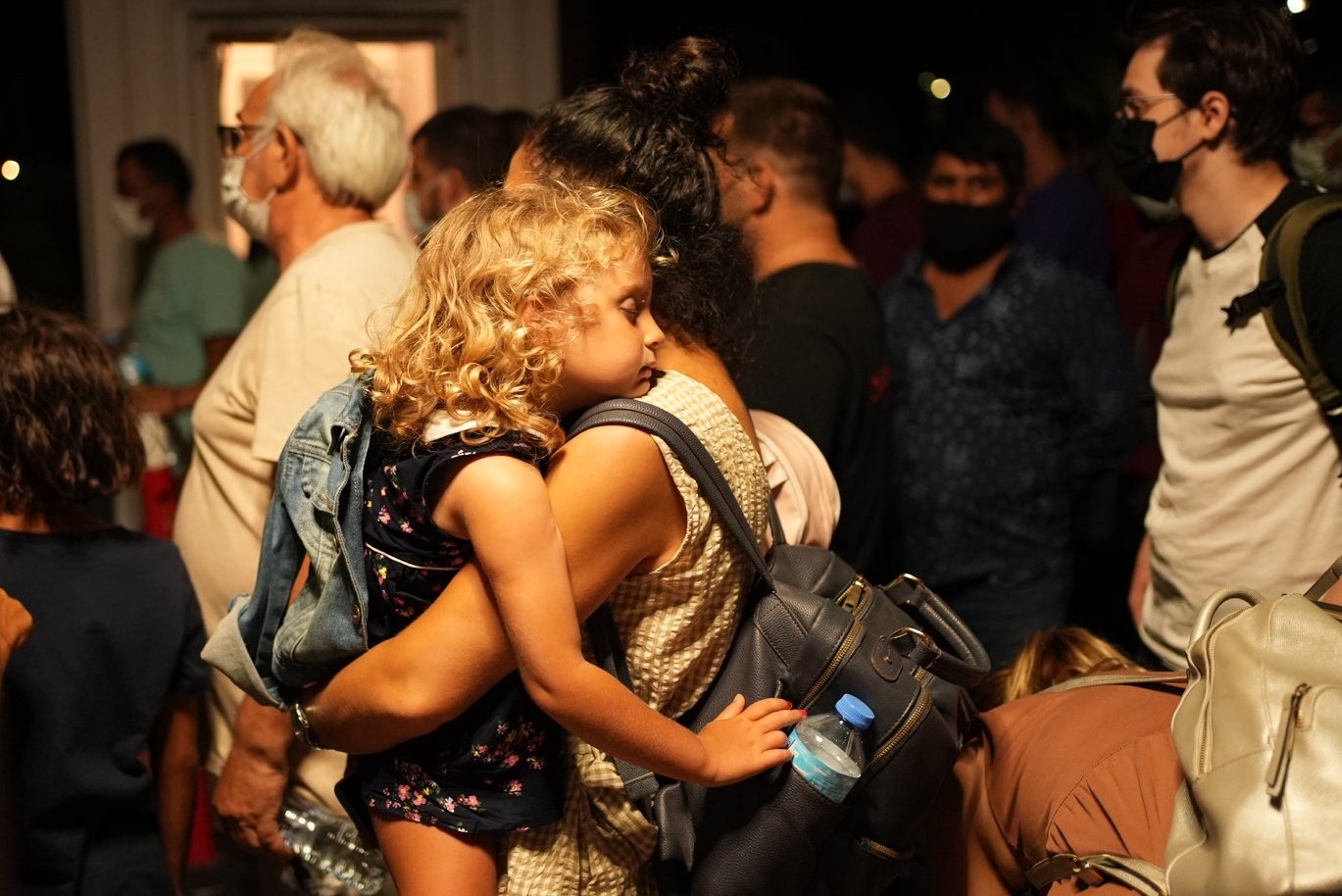We have been grappling with sadness, unhappiness, anger, confusion and despair for days, and we worry about our future generations.
These feelings have a name in the literature: Eco-anxiety. Academic and psychologist, Dr. Gizem Sürenkök talks about the reflection of fires to people that have been going on for days.
The number of insects is rapidly decreasing. The sixth mass extinction has occurred. Glaciers are melting. The sea level is rising. Forest fires are raging all over the planet… Climate change, with all of its tragedies, is playing out right in front of our eyes.
The forest fires that have been burning in several parts of Turkey for days have reintroduced the concept of environmental anxiety.
Dr. Gizem Sürenkök, an academic and psychologist, speaks with Ayşegül Özbek of Bianet on the impact of fires that have been burning for days and how we can cope with the emotional state we are in.
A.O. What is eco-anxiety or ecological anxiety? Since when is it on our agenda?
G.S. Eco-anxiety is the dread of species extinction, resource depletion, and the inability to establish a livable world in the future. Due to the killing of nature, people with this anxiety may experience feelings like rage, guilt, shame, and terror. Despite the fact that study on this topic has been ongoing since 2007, we can state that it is increasingly coming to the fore.
A.O. The climate catastrophe is a worldwide issue, yet I suppose we don’t all confront natural disasters and damage in the same way. Is this a personal matter for you? How are people who suffer from ecological anxiety affected, and how do they respond?
G.S. Of course, not everyone is affected in the same manner by disasters. It is possible to claim that people who consider the globe we live in to be their home are more affected by the crisis. Similarly, we know that those who are more anxious are more likely to feel ecological distress. The impact of the climate disaster on our mental health is far too big to be overlooked. Ecological anxiety is defined as melancholy, unhappiness, rage, and perplexity; being gloomy, feeling a big loss, feeling helpless and hopeless, and worried about our own future and future generations.
Post-traumatic stress disorder, depression, and memory loss are just a few of the issues that some people have experienced as a result of the climate catastrophe. The fact that stress levels are always rising becomes a social issue that has a bad impact on our relationships. The aspect of violence grows more prevalent as society becomes more hostile. The realisation that we have little control over our lives or the environment in which we live causes us to feel uncertain, which raises our anxiety. With this worry, we see the future in the most pessimistic light.
A.O. How do people watch the ongoing forest fires in many parts of Turkey and around the world, especially in the last 8 days? Have concerns increased in society? What do you think is the attitude of people in the face of fires that cannot be extinguished, let alone intense efforts?
G.S. We experience sentiments of helplessness, grief, and fear when we are confronted with fires because we are unable to find a social response. Are we the only ones who are experiencing these emotions? Aren’t they our forests? We didn’t notice the difference between you and me when we were enjoying the lush mountains behind us, the sea in front of us, and the beaches. Now, as all of these losses are being felt, we expect a movement in which we all act in concert, with the state supporting us with all of its resources. However, there were several occasions during this process when we couldn’t feel it for various reasons. This heightens the sense of helplessness.
Watching the forests burn step by step and living things perish while being unable to do anything in our home not only adds to the anguish of the current situation, but also makes us all fear what will happen next. As a result, we might claim that social anxiety is on the rise. The places where we were born, raised, and now live have vanished. Most of the time, we may believe that the impact we can have as individuals in a community will be insignificant, and as a result, we may go through a mourning process. In other words, we are grieving ecologically, even though we are not concerned about the environment.
My aim is that awareness will rise in tandem with anxiety, but this is not always the case. In fact, while being much more prepared for the next time, intervening before the fires escalate, would be the best thing for all of this sense of helplessness, hopelessness, and mourning we are experiencing as a society, I cannot ignore the fact that we are not very successful in learning from our experiences.


